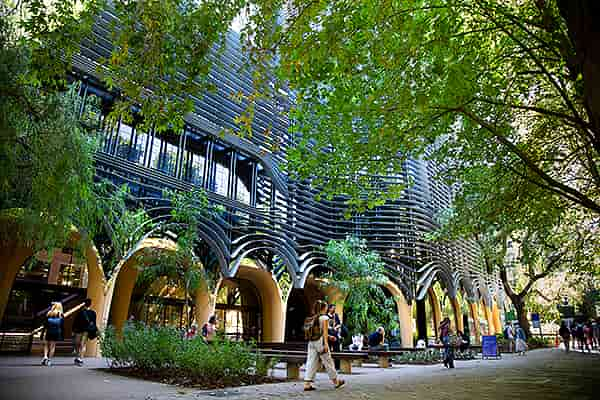
University of Melbourne Australia’s Most Sustainable

The QS World University Rankings: Sustainability 2025 were unveiled today by global higher education specialists QS Quacquarelli Symonds.
This year’s rankings feature 1,744 universities from 107 countries and territories, a significant increase from the 1,397 institutions across 95 countries included in last year’s edition. By comparison, the inaugural 2023 rankings assessed only 700 institutions.
Australia boasts 38 ranked universities, with 14 institutions placed in the top 100. The University of Melbourne leads the way, ranking 9th globally for sustainability.
Globally, Australia ranks second in sustainability based on the average scores of its universities, positioned behind New Zealand and ahead of Belgium, Canada, and the Netherlands. The University of Melbourne maintains its position as the nation’s top-ranked university, holding steady at 9th place worldwide.
In total, eight Australian universities are ranked in the global top 50, with 14 in the top 100. Australia excels in several key areas, ranking first globally in the Health and Wellbeing lens, second in the Impact of Education lens, and third in both the Governance and Equality lenses.
Best in Australia in QS University World Rankings: Sustainability 2025
| Position in Australia | Global Ranking | |
| 1 | =9 | The University of Melbourne |
| 2 | 11 | The University of Sydney |
| 3 | =12 | The University of New South Wales (UNSW Sydney) |
| 4 | 41 | The University of Queensland |
| 5 | 47 | University of Technology Sydney |
| 6 | 48 | The Australian National University |
| 7 | =49 | Griffith University |
| 7 | =49 | Monash University |
| 9 | 59 | Macquarie University |
| 10 | 73 | Queensland University of Technology (QUT) |
| 11 | =80 | RMIT University |
| 12 | =91 | Deakin University |
| 13 | =98 | The University of Adelaide |
| 13 | =98 | University of Wollongong |
| 15 | =112 | The University of Newcastle, Australia (UON) |
| 16 | =124 | University of Tasmania |
| 17 | =129 | The University of Western Australia |
| 18 | 139 | Western Sydney University |
| 19 | =145 | La Trobe University |
| 20 | =148 | Curtin University |
Ben Sowter, QS Vice President, highlighted that Australian universities are making significant strides in addressing the various sustainability challenges facing the world today.
Examples of this progress include the University of Melbourne’s Wattle Fellowships, which aim to develop future leaders in global sustainability; Curtin University’s hosting of a landmark Net Zero forum; La Trobe University’s creation of Victoria’s largest urban solar farm; and the University of Sydney’s Sydney Biomedical, which addresses some of the world’s most pressing health issues. These initiatives showcase how institutions across the country are driving change and delivering tangible impacts.
Sowter also emphasized that sustainability remains a rapidly evolving area of performance, noting that while progress has been made, there is still much work to be done—even by the top-performing institutions. He stressed the critical role universities can play as pioneers in sustainability and expressed hope that these metrics, included in the flagship rankings, will help institutions gain the support they need from stakeholders to fulfill their essential role in shaping a sustainable future.

